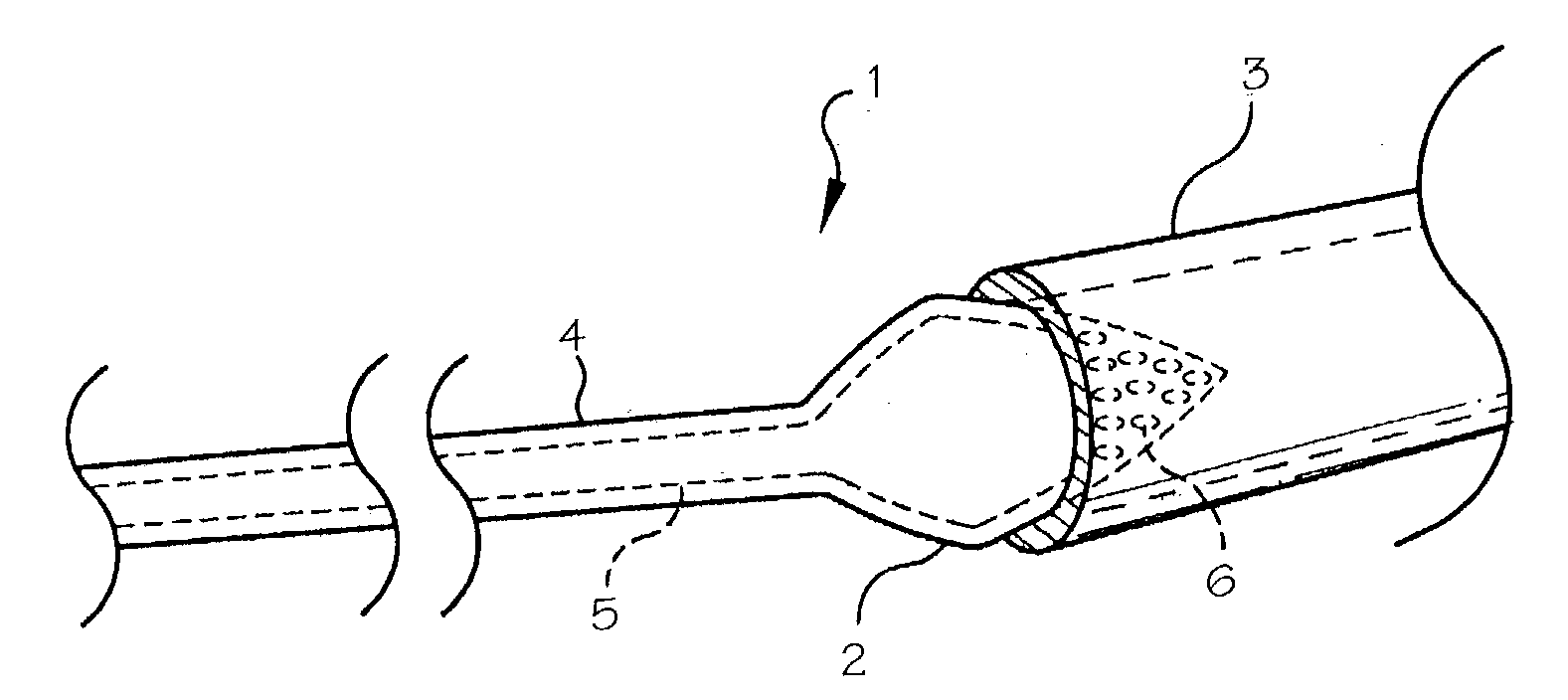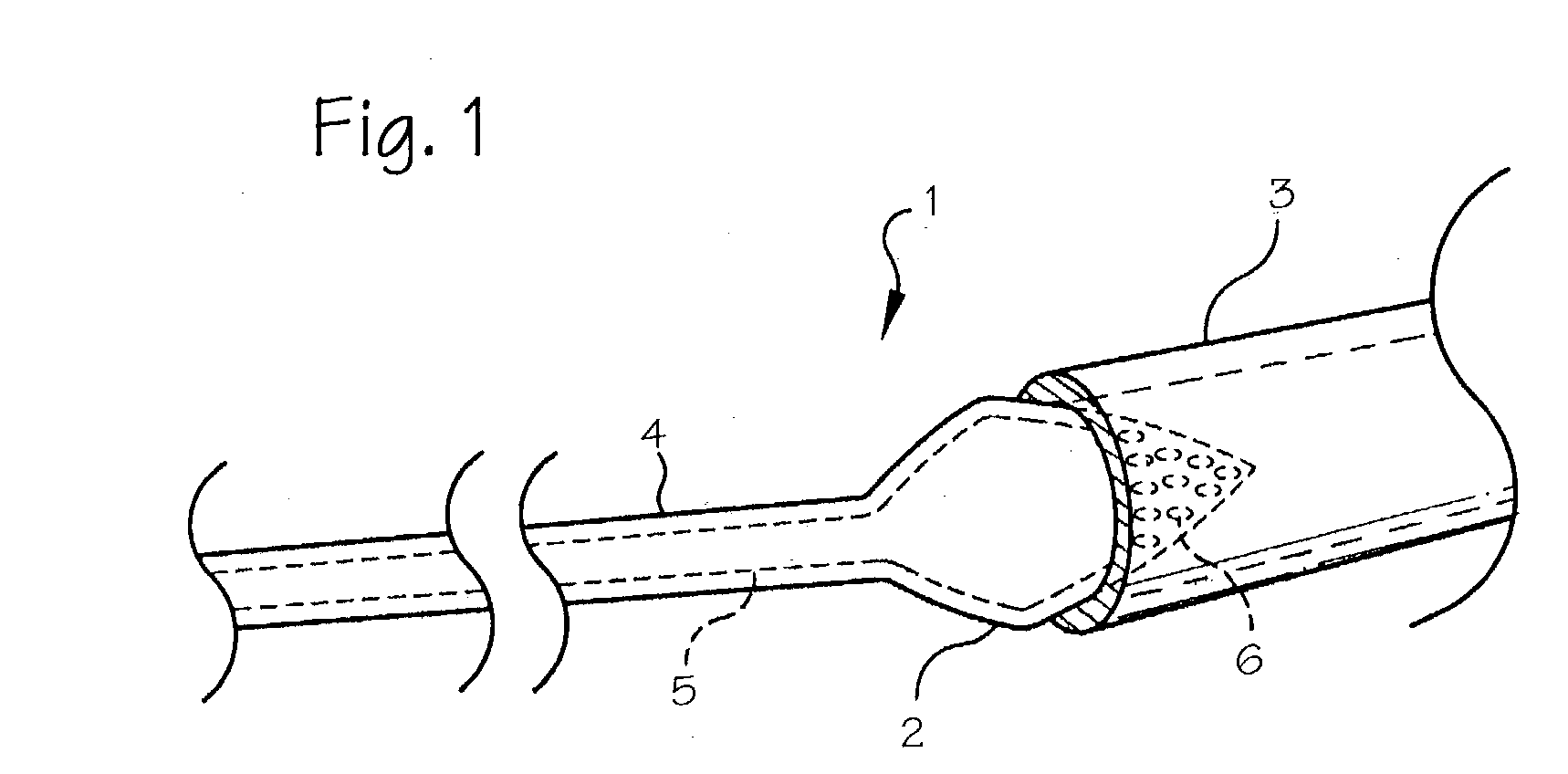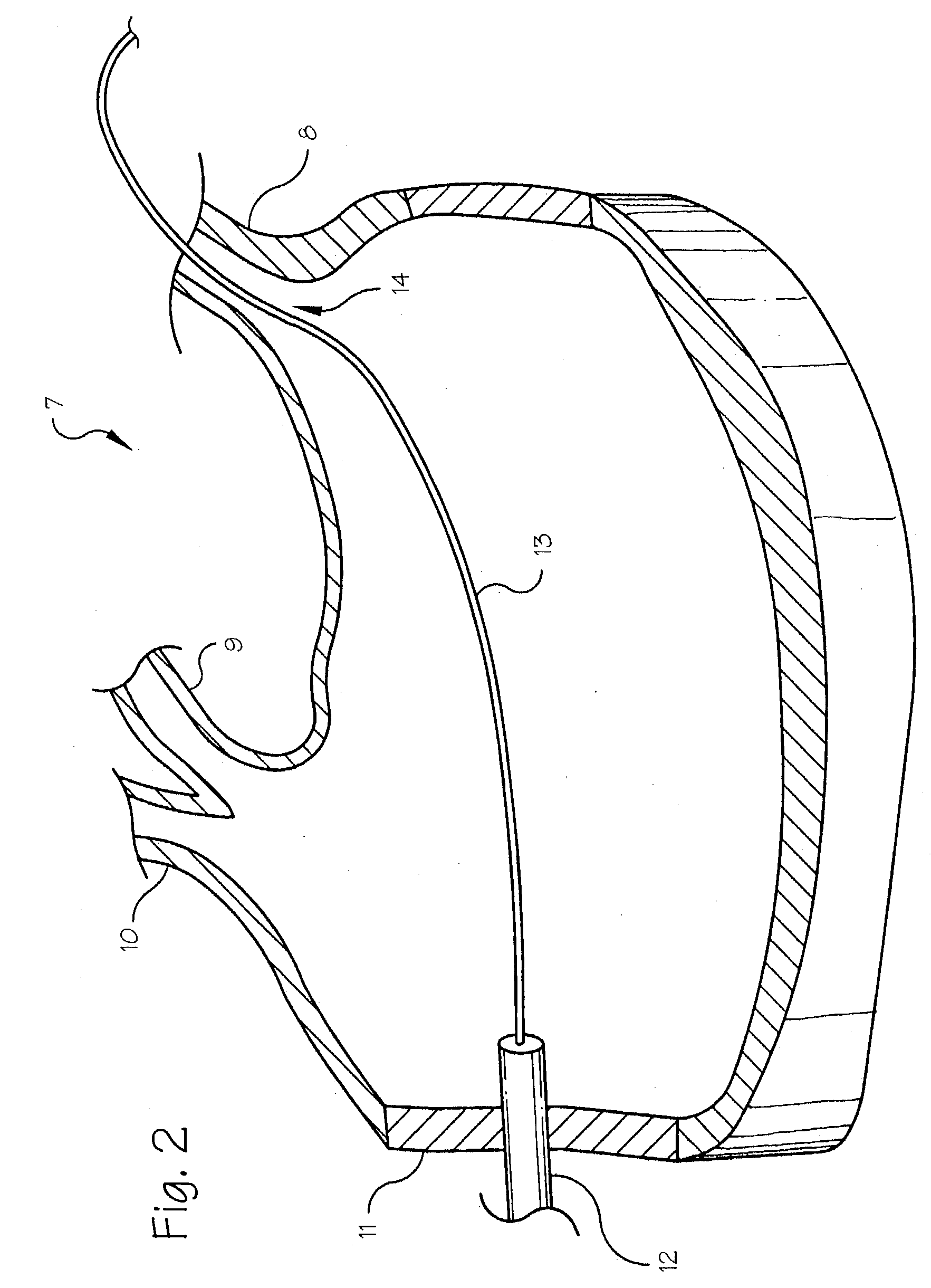Pulmonary vein arrhythmia diagnostic device and method for use
a technology of pulmonary vein and diagnostic device, which is applied in the field of diagnostic medical devices, can solve the problems of reduced ventricular filling, blood flow disruption, and heart weakness, and achieve the effects of reducing the number of ventricular fillings
- Summary
- Abstract
- Description
- Claims
- Application Information
AI Technical Summary
Benefits of technology
Problems solved by technology
Method used
Image
Examples
Embodiment Construction
[0012] FIG. 1 shows the preferred embodiment of the diagnostic catheter 1 with the balloon 2 in its inflated state within the pulmonary vein 3. The catheter body 4 includes a fluid supply lumen 5 which extends from the proximal end of the catheter to the balloon, providing a fluid pathway from a fluid reservoir (not shown) at the proximal end of the catheter to the balloon.
[0013] The diagnostic catheter includes a catheter having a balloon 2 located at the distal end of the catheter. The balloon is adapted to contact the pulmonary vein 3 when the balloon is inflated. The balloon is provided in a conical or frustoconical shape, allowing it to seat against the flared shape of the ostium 14 (the ostium is the junction between the pulmonary vein and the atrium) with the tip of the cone penetrating into the pulmonary vein and the base of the cone having a larger diameter than the pulmonary vein. The base of the cone should have a diameter chosen in relation to the estimated predetermined...
PUM
| Property | Measurement | Unit |
|---|---|---|
| temperature | aaaaa | aaaaa |
| conduction heterogeneity | aaaaa | aaaaa |
| heterogeneity | aaaaa | aaaaa |
Abstract
Description
Claims
Application Information
 Login to View More
Login to View More - R&D
- Intellectual Property
- Life Sciences
- Materials
- Tech Scout
- Unparalleled Data Quality
- Higher Quality Content
- 60% Fewer Hallucinations
Browse by: Latest US Patents, China's latest patents, Technical Efficacy Thesaurus, Application Domain, Technology Topic, Popular Technical Reports.
© 2025 PatSnap. All rights reserved.Legal|Privacy policy|Modern Slavery Act Transparency Statement|Sitemap|About US| Contact US: help@patsnap.com



